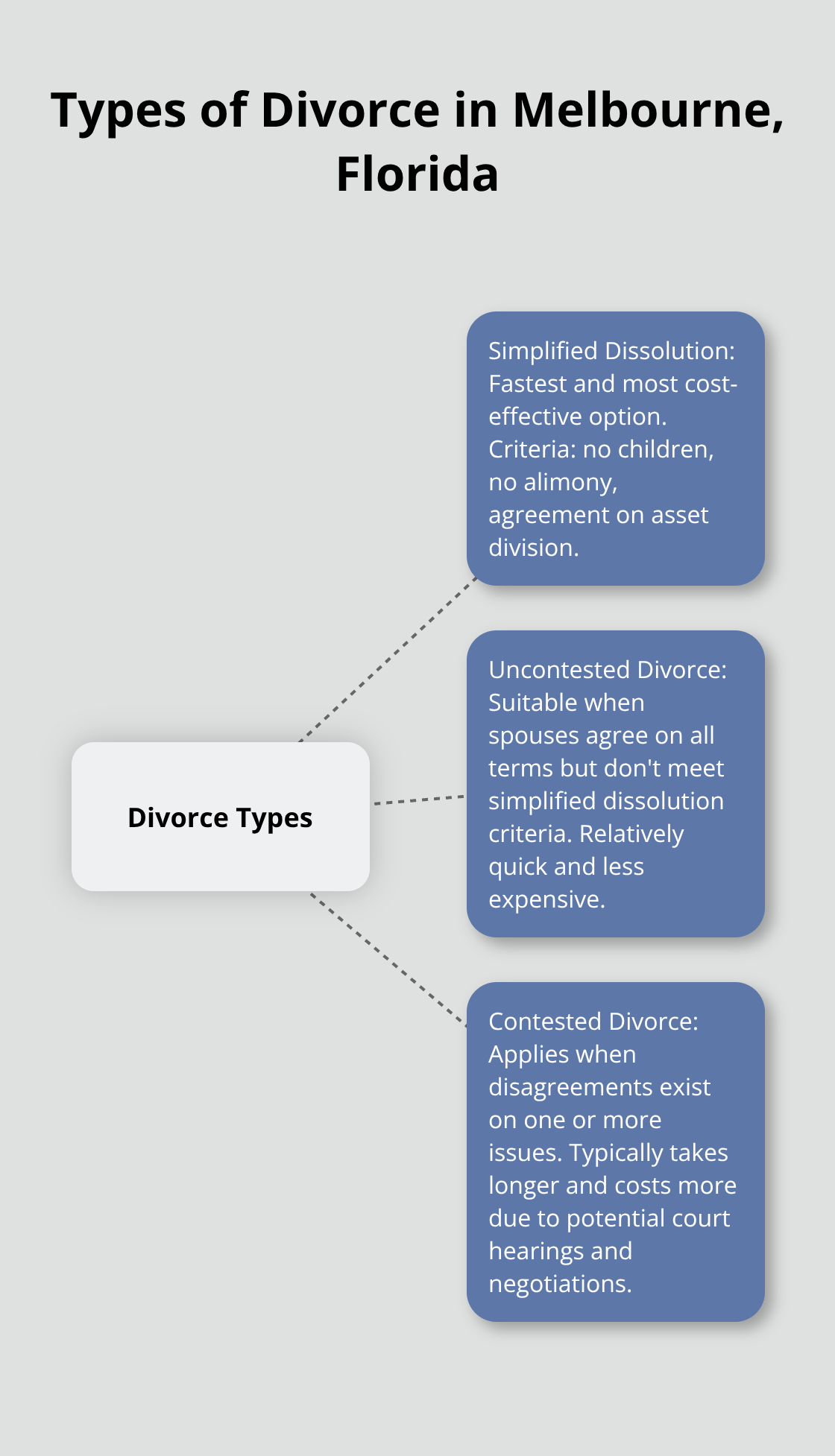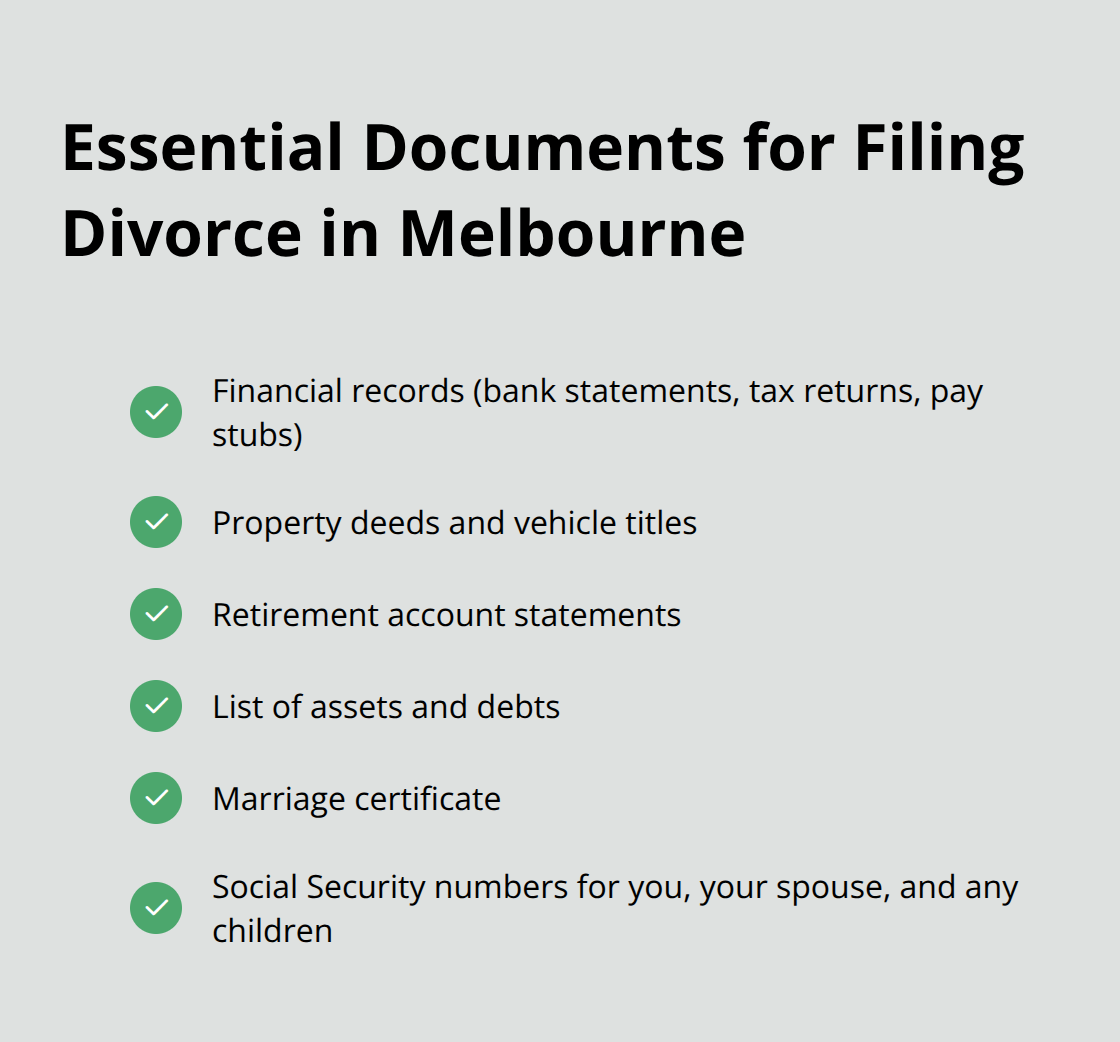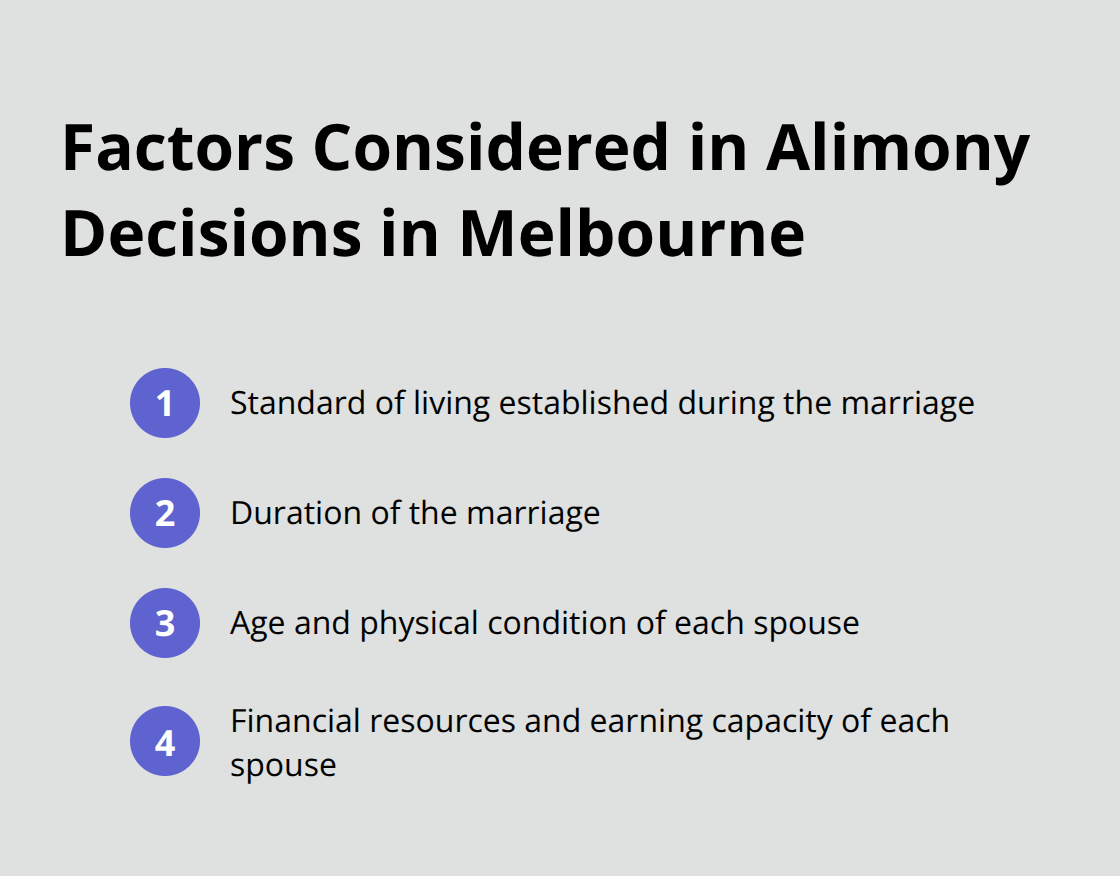How to File for Divorce in Melbourne Florida
Our Blog
How to File for Divorce in Melbourne Florida

Navigating the divorce process in Melbourne, Florida can be complex and emotionally challenging. At Harnage Law PLLC, we understand the difficulties you may face when deciding to end your marriage.
This guide will walk you through how to file for divorce in Melbourne, Florida, covering everything from residency requirements to key considerations like asset division and child custody. We’ll provide practical steps and valuable insights to help you navigate this significant life transition.
How Florida’s No-Fault Divorce System Works in Melbourne
Understanding No-Fault Divorce
In Melbourne, Florida, divorces follow the state’s no-fault system. This approach eliminates the need to prove wrongdoing by your spouse to end your marriage. You simply state that your marriage is “irretrievably broken.” The no-fault system often reduces conflict and accelerates the divorce process.
Residency Requirements for Divorce in Brevard County
To file for divorce in Melbourne (located in Brevard County), you or your spouse must have lived in Florida for at least six months before filing. This residency requirement is strict. You’ll need to provide proof, such as a Florida driver’s license or voter registration card.
Types of Divorce in Melbourne
Melbourne offers three main options for divorce:
- Simplified Dissolution: This option provides the fastest and most cost-effective route, but it has specific criteria. You qualify if you have no children, don’t seek alimony, and agree on asset division.
- Uncontested Divorce: If you and your spouse agree on all terms but don’t meet the criteria for a simplified dissolution, this option suits you best. It remains relatively quick and less expensive than a contested divorce.
- Contested Divorce: When disagreements exist on one or more issues, your divorce becomes contested. These cases typically take longer and cost more due to potential court hearings and negotiations.

The Impact of Mediation in Melbourne Divorces
Many Florida courts, including those in Melbourne, require couples to attempt mediation before proceeding to trial. Mediation can resolve disputes more amicably and often leads to faster, less expensive divorces. Many cases benefit from mediation, helping couples reach mutually satisfactory agreements and avoid the stress (and cost) of a trial.
As we move forward, let’s explore the necessary steps to file for divorce in Melbourne, starting with the crucial document gathering process.
How to File for Divorce in Melbourne, Florida
Gather Essential Documents
The first step in filing for divorce in Melbourne involves collecting crucial documents. These typically include:
- Financial records (bank statements, tax returns, pay stubs)
- Property deeds and vehicle titles
- Retirement account statements
- List of assets and debts
- Marriage certificate
- Social Security numbers for you, your spouse, and any children

The organization of these documents early in the process provides a clear financial picture for property division discussions and streamlines the entire procedure.
File the Petition
After you collect the necessary information, you must file a Petition for Dissolution of Marriage with the Brevard County Clerk of Court. This document outlines your desired terms for the divorce, including property division, alimony, and child custody (if applicable).
The filing fee in Brevard County changes periodically. Check the current fee schedule on the Clerk’s website before filing. If you can’t afford the fee, you might qualify for a waiver by filing an Application for Determination of Civil Indigent Status.
Serve Your Spouse
Once you file, you must legally serve your spouse with the divorce papers. In Melbourne, this task is typically performed by the Brevard County Sheriff’s Office or a private process server. Your spouse then has 20 days to respond to the petition.
If you can’t locate your spouse, the court may allow service by publication in a local newspaper. However, this method often complicates and prolongs the divorce process.
Respond to a Petition
If you receive divorce papers, you must respond within the 20-day timeframe. Your response can agree with the terms proposed by your spouse or contest them and present your own terms.
A failure to respond could result in a default judgment, potentially placing you at a disadvantage in property division and other important matters.
Throughout this process, experienced legal representation can make a significant difference. Many individuals in Melbourne (and across Brevard County) turn to local law firms for guidance through these steps, ensuring their rights and interests receive protection as they embark on this new chapter in their lives.
As we move forward, let’s explore the key considerations that arise during a Melbourne divorce, including the division of marital assets and debts, alimony, and child-related matters.
What Happens to Assets and Children in a Melbourne Divorce?
Division of Marital Assets and Debts
Florida courts apply the principle of equitable distribution when dividing marital assets and debts in Melbourne divorces. This doesn’t always result in a 50/50 split. The court considers factors such as the marriage duration, each spouse’s economic situation, and their contributions to the marriage.
A spouse who sacrificed their career to raise children might receive a larger portion of the assets. Conversely, a spouse who accumulated significant personal debt might be assigned a larger share of marital debt.
It’s essential to create a comprehensive list of all assets and debts acquired during the marriage. This includes houses, cars, retirement accounts, investments, and small business interests. Don’t overlook debts – credit card balances, mortgages, and personal loans all play a role in the distribution process.
Alimony Considerations
Alimony (spousal support) isn’t guaranteed in every Melbourne divorce. The court evaluates various factors to determine whether to award alimony:
- The standard of living established during the marriage
- The marriage duration
- Each spouse’s age and physical condition
- Each spouse’s financial resources and earning capacity

Florida recognizes several types of alimony, including bridge-the-gap, rehabilitative, durational, and permanent. The type and amount awarded depend on the specific circumstances of each case.
For marriages lasting over 17 years (considered long-term in Florida), permanent alimony might be considered. In shorter marriages where one spouse needs time to become self-supporting, rehabilitative alimony might be more appropriate.
Child Custody and Support
Child custody (now called time-sharing in Florida) and support often become the most emotionally charged aspects of a divorce. Florida courts prioritize the child’s best interests when making these decisions.
Time-sharing arrangements vary widely. Some parents opt for a 50/50 split, while others might have one parent as the primary caregiver with the other having regular visitation. The court evaluates factors such as each parent’s ability to provide a stable environment, their relationship with the child, and the child’s preference (if they’re old enough).
Florida calculates child support using a specific formula. This formula takes into account both parents’ incomes, the number of overnight stays with each parent, and expenses like health insurance and childcare. It’s important to note that child support isn’t negotiable – it’s a right of the child, not the parent.
The Role of Legal Representation
Navigating these complex issues during a Melbourne divorce can overwhelm many individuals. While it’s possible to handle a divorce without legal representation, an experienced family law attorney can make a significant difference in protecting your rights and securing a fair outcome.
An attorney can help you understand the nuances of asset division, advocate for fair alimony arrangements (if applicable), and ensure that child custody and support decisions align with your children’s best interests. They can also help you avoid common pitfalls and mistakes that could negatively impact your case.
Final Thoughts
Filing for divorce in Melbourne, Florida requires careful planning and execution. The process involves document gathering, petition filing, and navigating complex issues like asset division and child custody. Professional guidance often proves invaluable, especially in cases with significant assets or contentious disputes.
Brevard County offers resources to support divorcing couples through this challenging time. The Clerk of Courts provides informational packets and forms to assist with the filing process. Local support groups, counseling services, and financial advisors can offer additional help during this transition.
Harnage Law PLLC provides personalized attention and strategic counsel to individuals who want to file for divorce in Melbourne, Florida. Our team understands the intricacies of Florida family law and strives to protect our clients’ interests throughout the divorce process (and beyond). We aim to help you navigate this transition and set the stage for your next chapter.
